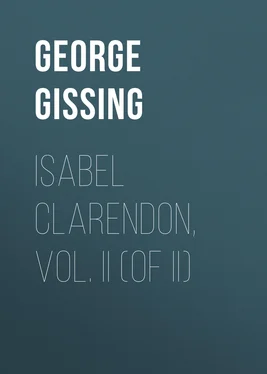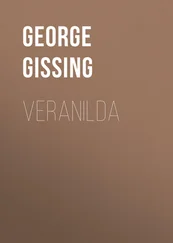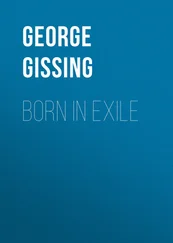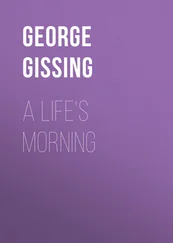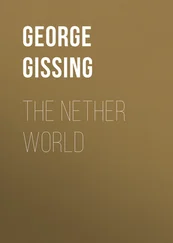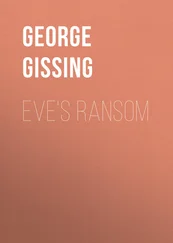George Gissing - Isabel Clarendon, Vol. II (of II)
Здесь есть возможность читать онлайн «George Gissing - Isabel Clarendon, Vol. II (of II)» — ознакомительный отрывок электронной книги совершенно бесплатно, а после прочтения отрывка купить полную версию. В некоторых случаях можно слушать аудио, скачать через торрент в формате fb2 и присутствует краткое содержание. Жанр: foreign_prose, literature_19, foreign_antique, на английском языке. Описание произведения, (предисловие) а так же отзывы посетителей доступны на портале библиотеки ЛибКат.
- Название:Isabel Clarendon, Vol. II (of II)
- Автор:
- Жанр:
- Год:неизвестен
- ISBN:нет данных
- Рейтинг книги:3 / 5. Голосов: 1
-
Избранное:Добавить в избранное
- Отзывы:
-
Ваша оценка:
- 60
- 1
- 2
- 3
- 4
- 5
Isabel Clarendon, Vol. II (of II): краткое содержание, описание и аннотация
Предлагаем к чтению аннотацию, описание, краткое содержание или предисловие (зависит от того, что написал сам автор книги «Isabel Clarendon, Vol. II (of II)»). Если вы не нашли необходимую информацию о книге — напишите в комментариях, мы постараемся отыскать её.
Isabel Clarendon, Vol. II (of II) — читать онлайн ознакомительный отрывок
Ниже представлен текст книги, разбитый по страницам. Система сохранения места последней прочитанной страницы, позволяет с удобством читать онлайн бесплатно книгу «Isabel Clarendon, Vol. II (of II)», без необходимости каждый раз заново искать на чём Вы остановились. Поставьте закладку, и сможете в любой момент перейти на страницу, на которой закончили чтение.
Интервал:
Закладка:
“Did you ever read a book called–?” he asked, naming the novel of Marryat’s which had absorbed him through the afternoon.
“I should think so!” exclaimed Miss Pye, her eyes gleaming with appreciation. “Isn’t it awfully jolly? And–”
She proceeded to name half a dozen other works by the same refined and penetrating author.
“That’s the kind of book I like,” she said. “I believe I ought to have been a boy by rights. My brothers have all Marryat, and Mayne Reid, and Cooper; and I know them all by heart. ‘Valentine Vox,’ too; do you know that? Oh, you just get it, as soon as you can. And ‘Tom Burke of Ours’; that’s Lever. And ‘Handy Andy.’ You haven’t read ‘Handy Andy’? But what a great deal you have to read yet.”
Robert admitted that such was the case. Miss Pye had got upon her subject, and Asquith drew her out. She was something of a new female type to him; but only so because he had long been unused to the society of English girls. Had he mentioned a book by George Eliot she would have told him that her mother didn’t approve of that writer, who was an atheist and immoral.
Later he found himself by Isabel. Her proximity was pleasant to him. He would have preferred just now to sit by her in silence, an glance at her face occasionally, but that was scarcely possible.
“You will let me hear from you when that business is over?” he said.
“I will. Remember it is not my function to send invitations for the wedding.”
“I suppose not.”
Somebody else drew near.
As they passed from the dining-room after breakfast next morning, Isabel said to Mrs. Stratton:
“Come to the boudoir; I have a letter I want to show you.”
The letter was this:
“Dear Mrs. Clarendon,
“I want to tell you in as few words as possible that my marriage is indefinitely postponed. It will not, in any event, take place before I complete my twenty-first year. My second purpose in writing to you is to ask your permission to go at once to London and live in Mr. Meres’ house. This is for purposes of study. I am unable to procure at Knightswell the materials I need. Will you oblige me with a reply as soon as you can?
“Faithfully yours,
“Ada Warren.”
“It does not in the very least surprise me,” observed Mrs. Stratton, smiling urbanely.
“I don’t think I could say that. I am surprised. I believed Ada would stick to a purpose through thick and thin.”
“My dear, she accepted that man in a moment of pique, and she has very wisely repented whilst there is time.”
Isabel was silent.
“And her wanting to go to London,” pursued the other. “It’s all perfectly clear. She’s ashamed of herself; she can’t face you.”
Isabel seated herself and mused, the letter on her lap. Her cheek had a flush of excitement, and her eyes were very bright.
“Look at this, too,” she said, with a laugh, taking from its envelope another letter she was holding. “From Mrs. Bruce Page. I wonder she is not ashamed of herself, I really do!”
“My dearest Mrs. Clarendon,” ran this epistle, “it would be a mercy if you would let me know what your latest news is about that boy. Do you hear from or of him? Has he done anything surprising yet? I shouldn’t a bit wonder if he does—I mean in this affair. He is capable of anything. Do let me know at once if you have any curious news either from him or Ada.”
“It looks as if she anticipated it,” said Mrs. Stratton.
“It does. It would be no great wonder if she proved to be at the bottom of it.”
“Of the postponement, or rupture, or whatever it is?”
Isabel nodded.
“But what shall you do immediately?”
“Nothing. What is there to do? Merely write and give her the permission she asks for.”
“I am really delighted at this!” Mrs. Stratton exclaimed.
“Why should you be delighted? I assure you it is nothing to me.”
“My dear, it is everything—you will tell Mr. Asquith?”
“I suppose so. It will annoy him.”
She reddened, and corrected herself.
“Nonsense, I didn’t mean to say that. I dare say he will take it very much as you do. But you will both be wrong, both be wrong.”
“Isabel, you are mysterious.”
“Am I?” she asked with a laugh, not a very joyous one.
“Yes, more mysterious than I like.”
“Then indeed it won’t be mysterious at all. It’s only in your imagination, Rose. Oh dear, oh dear!” she sighed, “this world is a hard one!”
“I wonder whether you will hear from Mr. Lacour?” Mrs. Stratton asked, after trying to read her friend’s face.
“I wonder,” said Isabel absently.
Their conversation soon came to an end. There was to be driving before lunch as the sky had cleared, and it was not till afternoon that Isabel had an opportunity of informing her cousin of the news she had received.
Robert heard it calmly.
“I really do not know whether to congratulate you or not,” he said, with meaning.
“At all events, you may congratulate Ada.”
“Probably. Do you stay here much longer?”
“I go at the end of the week, the day after to-morrow.”
“So soon?”
“Yes, Knightswell must not be left empty.”
They gazed at each other without definite expression.
CHAPTER III
I shall be home on Saturday,” wrote Isabel, at the close of a letter addressed to Wood End. “I am writing to Mr. Vissian, to ask him to come and see me before his afternoon service on Sunday, as I want to speak with him of several things. Will you come at three? He will leave shortly after, and you—perhaps will not care to stay?”
She said nothing of the event which had hurried her return, neither did she mention it in her letter to the rector. Mr. Vissian called at the cottage on Friday.
“I have a message for you from Mrs. Clarendon,” he said. “She is returning, and will be glad to see you any time after three on Sunday. I shall be at the house between two and three myself—have to go specially—your audience will succeed mine.”
Kingcote smiled as he promised to obey the summons.
“We shall see you to-morrow as usual,” said Mr. Vissian, in going. “I believe I have got hold of something that will startle you. Nothing, nothing; merely the solution of a crux which has defied every Shakspearian critic hitherto. Don’t be too excited about it; it may prove a mare’s nest; but ”–the rector half closed his eyes and nodded twice—“we shall see.”
He went off in his usual high spirits. Sundry Christmas bills had just reduced him to penury, but that was a care he did not allow to weigh upon him, for all that his black suit of daily wear cried shame upon him at the elbows—yet weaker points were happily concealed by pendent cloth. Had he not on his shelves the last year’s publications of the Early English Text Society, bound in halfcalf extra?
To his infinite annoyance, he waited in vain for Kingcote on Saturday evening. The discovery at which he had hinted, had become overnight a certainty; he was convinced that he had explained “the Lady of the Strachy!” (See, loc. cit ., the critical edition of Twelfth Night , which Mr. Vissian subsequently put forth—a work deserving more attention at the hands of Shakspearian scholars than it has received.)
“ What can ail the man?” he exclaimed impatiently, as he kept coming forth from his study to Mrs. Vissian. “He never failed us before. If he only knew what I’ve got for him!”
But Kingcote did not appear, and Mr. Vissian only saw him on the morrow in Mrs. Clarendon’s drawing-room. Kingcote came in with a grave look, and shook hands with Isabel in silence.
Читать дальшеИнтервал:
Закладка:
Похожие книги на «Isabel Clarendon, Vol. II (of II)»
Представляем Вашему вниманию похожие книги на «Isabel Clarendon, Vol. II (of II)» списком для выбора. Мы отобрали схожую по названию и смыслу литературу в надежде предоставить читателям больше вариантов отыскать новые, интересные, ещё непрочитанные произведения.
Обсуждение, отзывы о книге «Isabel Clarendon, Vol. II (of II)» и просто собственные мнения читателей. Оставьте ваши комментарии, напишите, что Вы думаете о произведении, его смысле или главных героях. Укажите что конкретно понравилось, а что нет, и почему Вы так считаете.
